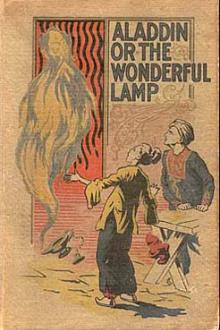The Yellow Claw by Sax Rohmer (best short novels txt) 📗

- Author: Sax Rohmer
Book online «The Yellow Claw by Sax Rohmer (best short novels txt) 📗». Author Sax Rohmer
Within, proceeded a subdued activity: somber figures moved upon the staircase; and Inspector Dunbar, having presented his card, presently found himself in a well-appointed library.
At the table, whereon were spread a number of documents, sat a lean, clean-shaven, sallow-faced man, wearing gold-rimmed pince-nez; a man whose demeanor of business-like gloom was most admirably adapted to that place and occasion. This was Mr. Debnam, the solicitor. He gravely waved the detective to an armchair, adjusted his pince-nez, and coughed, introductorily.
“Your communication, Inspector,” he began (he had the kind of voice which seems to be buried in sawdust packing), “was brought to me this morning, and has disturbed me immeasurably, unspeakably.”
“You have been to view the body, sir?”
“One of my clerks, who knew Mrs. Vernon, has just returned to this house to report that he has identified her.”
“I should have preferred you to have gone yourself, sir,” began Dunbar, taking out his notebook.
“My state of health, Inspector,” said the solicitor, “renders it undesirable that I should submit myself to an ordeal so unnecessary—so wholly unnecessary.”
“Very good!” muttered Dunbar, making an entry in his book; “your clerk, then, whom I can see in a moment, identifies the murdered woman as Mrs. Vernon. What was her Christian name?”
“Iris—Iris Mary Vernon.”
Inspector Dunbar made a note of the fact.
“And now,” he said, “you will have read the copy of that portion of my report which I submitted to you this morning—acting upon information supplied by Miss Helen Cumberly?”
“Yes, yes, Inspector, I have read it—but, by the way, I do not know Miss Cumberly.”
“Miss Cumberly,” explained the detective, “is the daughter of Dr. Cumberly, the Harley Street physician. She lives with her father in the flat above that of Mr. Leroux. She saw the body by accident—and recognized it as that of a lady who had been named to her at the last Arts Ball.”
“Ah!” said Debnam, “yes—I see—at the Arts Ball, Inspector. This is a mysterious and a very ghastly case.”
“It is indeed, sir,” agreed Dunbar. “Can you throw any light upon the presence of Mrs. Vernon at Mr. Leroux's flat on the very night of her husband's death?”
“I can—and I cannot,” answered the solicitor, leaning back in the chair and again adjusting his pince-nez, in the manner of a man having important matters—and gloomy, very gloomy, matters—to communicate.
“Good!” said the inspector, and prepared to listen.
“You see,” continued Debnam, “the late Mrs. Vernon was not actually residing with her husband at the date of his death.”
“Indeed!”
“Ostensibly”—the solicitor shook a lean forefinger at his vis-a-vis—“ostensibly, Inspector, she was visiting her sister in Scotland.”
Inspector Dunbar sat up very straight, his brows drawn down over the tawny eyes.
“These visits were of frequent occurrence, and usually of about a week's duration. Mr. Vernon, my late client, a man—I'll not deny it—of inconstant affections (you understand me, Inspector?), did not greatly concern himself with his wife's movements. She belonged to a smart Bohemian set, and—to use a popular figure of speech—burnt the candle at both ends; late dances, night clubs, bridge parties, and other feverish pursuits, possibly taken up as a result of the—shall I say cooling?—of her husband's affections”...
“There was another woman in the case?”
“I fear so, Inspector; in fact, I am sure of it: but to return to Mrs. Vernon. My client provided her with ample funds; and I, myself, have expressed to him astonishment respecting her expenditures in Scotland. I understand that her sister was in comparatively poor circumstances, and I went so far as to point out to Mr. Vernon that one hundred pounds was—shall I say an excessive?—outlay upon a week's sojourn in Auchterander, Perth.”
“A hundred pounds!”
“One hundred pounds!”
“Was it queried by Mr. Vernon?”
“Not at all.”
“Was Mr. Vernon personally acquainted with this sister in Perth?”
“He was not, Inspector. Mrs. Vernon, at the time of her marriage, did not enjoy that social status to which my late client elevated her. For many years she held no open communication with any member of her family, but latterly, as I have explained, she acquired the habit of recuperating—recuperating from the effects of her febrile pleasures—at this obscure place in Scotland. And Mr. Vernon, his interest in her movements having considerably—shall I say abated?—offered no objection: even suffered it gladly, counting the cost but little against”...
“Freedom?” suggested Dunbar, scribbling in his notebook.
“Rather crudely expressed, perhaps,” said the solicitor, peering over the top of his glasses, “but you have the idea. I come now to my client's awakening. Four days ago, he learned the truth; he learned that he was being deceived!”
“Deceived!”
“Mrs. Vernon, thoroughly exhausted with irregular living, announced that she was about to resort once more to the healing breezes of the heather-land”—Mr. Debnam was thoroughly warming to his discourse and thoroughly enjoying his own dusty phrases.
“Interrupting you for a moment,” said the inspector, “at what intervals did these visits take place?”
“At remarkably regular intervals, Inspector: something like six times a year.”
“For how long had Mrs. Vernon made a custom of these visits?”
“Roughly, for two years.”
“Thank you. Will you go on, sir?”
“She requested Mr. Vernon, then, on the last occasion to give her a check for eighty pounds; and this he did, unquestioningly. On Thursday, the second of September, she left for Scotland”...
“Did she take her maid?”
“Her maid always received a holiday on these occasions; Mrs. Vernon wired her respecting the date of her return.”
“Did any one actually see her off?”
“No, not that I am aware of, Inspector.”
“To put the whole thing quite bluntly, Mr. Debnam,” said Dunbar, fixing his tawny eyes upon the solicitor, “Mr. Vernon was thoroughly glad to get rid of her for a week?”





Comments (0)